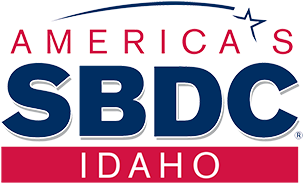Searching in Financing Your Business [clear]
Financing Your Business
I need a grant to start my business. Who offers them and how do I apply?
Very few grants are available to start or expand a for-profit business unless you have invented a new technology. Most grants are available to non-profits and community organizations to expand their work or to fund special projects and activities.
SBIR/STTR Grants: If you have invented an innovative product that will serve the national interest, you may qualify for an SBIR or an STTR grant to help develop it. Grants are offered by 11 federal agencies through a competitive process. Information is available at SBIR.gov. If you think you may qualify for an SBIR grant, contact your nearest Small Business Development Center or Elevate Idaho for assistance in applying.
NASA Idaho Space Grant Consortium and Idaho NASA Established Program to Stimulate Competitive Research: Research opportunities and student internships with NASA
Grants for Innovation: If you own an existing for-profit business (not a start-up) that is engaged in the development of new processes or technologies or uses natural resources in an innovative way, you may qualify for a research grant. To find grant opportunities, see:
- Grants.gov
- U.S. Department of Agriculture Rural Business Development Grants in Idaho
- U.S. Department of Energy
- U.S. Department of Justice
- U.S. Department of the Treasury
- National Institute of Health
- NASA
- Housing and Urban Development (HUD)
- U.S. Department of the Interior Bureau of Land Management
- U.S. Department of the Interior Office of Grants Management
- U.S. Bureau of Reclamation – WaterSMART water and energy grants
Made in America Grants: If you manufacture a product that is made in America and you have problems competing with foreign businesses, you may be eligible for assistance through the Northwest Trade Adjustment Assistance Center.
U.S. Economic Development Administration: Economic development assistance – available to communities and tribes
Idaho Department of Agriculture: financial resources
Idaho Regional Travel Grant Program: – available to chambers, visitors centers, travel councils and other community organizations
FedEx Small Business Grants
Ebay Up & Running Grants: Recipients must have an active Ebay seller's account.
National Association for the Self-Employed micro grants
Wells Fargo Grants: available to community organizations and nonprofits for community development activities
Idaho Power Local Energy Efficiency Funds: grants for energy conservation projects
Idaho State Elks Association: Community Charity
Amber Grants for Women: Monthly grants of $500 are offered. At the end of the year, one of the monthly winners will receive an additional $25,000. See WomensNet for details.
Chobani Community Impact Fund: available to businesses in the Magic Valley to expand economic opportunity and promote entrepreneurship
KeyBank Foundation
Micron Gives: Available to non-profits
Non-profits: If you are a non-profit organization, these sites will be helpful:
- Idaho Nonprofit Center
- Candid (formerly the Foundation Center)
- Candid Foundation Directory
Other Programs: Special business assistance programs for women, minorities, veterans, the disabled, and others are available, but they are usually for low interest loans, government contracting opportunities, and other types of assistance, not grants.
Partnerships: U.S. Fish & Wildlife Service
Tax Incentives: Your business may qualify for tax incentives (tax credits) for certain business activities, such as creating new jobs in an economically depressed area, hiring the long-term unemployed, or making workplace accommodations for a disabled employee. Incentives are offered at both the state and federal levels. State programs are listed on the Idaho Department of Commerce website. To find federal tax incentives, visit the Internal Revenue Service website. Also visit the Taxes page on this website to find additional resources.
SCOR/U-7 Finance Program: The Small Company Offering Regulations program administered by the Idaho Department of Finance enables established businesses to accept investment funds from qualified Idaho investors without registering with the U.S. Securities and Exchange Commission.
Challenge.gov: Government agencies having a specific need list it on Challenge.gov. Businesses and individuals can submit a solution. The needs regularly change, as do the requirements to submit a proposal.
To learn about funding for which your business may qualify, talk with a counselor at the Boise or Spokane Small Business Administration offices, the Idaho Small Business Development Center, or a SCORE counselor. Contact information for each organization is listed in the Assistance Resources section of this site. Counseling services are free.
What is crowdfunding?
Crowdfunding is a financing option designed to quickly raise funds by securing many small donations from many contributors. Crowdfunding is most successful when a business needs to raise a modest amount of money in a short time. The most common type of crowdfunding involves soliciting donations to start a business or launch a new product. Donors receive a specialty gift for donating. Kickstarter and IndieGoGo are two popular crowdfunding donation websites.
About 30 percent of businesses meet their funding goal. If they don’t, the business receives no money and donated funds are returned to the donors.
The most easily funded products are games, art, books, music, food, fashion and design. Crowdfunding is not often successful for service businesses, website or app development and any other activity not offering a tangible product.
Other types of crowdfunding: Equity funding, debt funding and subscription based funding are additional types of crowdfunding. Equity funding sites, such as EquityNet, sell small amounts of equity in a business to a large network of purchasers. Crowdfunding equity sales are regulated by the Securities and Exchange Commission (SEC).
Debt funding sites, such as Kiva, provide micro loans, usually to individuals in emerging nations. The lender is repaid when the business makes a profit. Patreon is an example of a subscription funding site used by podcasters, musicians and other creative individuals where fans pay to listen to the artists’ work.
Crowdfunding websites may charge a percentage of the amount raised to cover their administrative costs. Credit card processing fees also apply. U.S. residents who raise money through crowdfunding must pay income tax on funds received.
Act for Impact: Bank of the West has teamed with Ulule to provide crowdfunding opportunities for women owned businesses, social impact entrepreneurs, small businesses and nonprofits with a vision for social change.
What loans are available to start a business?
Banks, some credit unions and numerous private organizations offer loans for everything from the purchase of a business to equipment leasing to factoring (a loan against accounts receivables). Family and friends may also lend money to help start your business. The following loan programs are available to many small businesses, though some are available only to established businesses, not start-ups. All require the borrower to have a well researched and written business plan and collateral. To find banks and other loan resources in your area, complete a search of the Resource Wizard on this site.
Small Business Administration Loan Guarantees – The SBA does not lend money. Rather, it guarantees loans offered by participating banks. To qualify, an applicant must meet both the bank’s and the SBA’s requirements.
For information about applying for an SBA loan, talk to your bank or visit SBA Loans.
- CAPLines – Helps established businesses meet short term and cyclical working capital needs
- 7a Loan Program – The most common SBA loan; can be used for several purposes
- Microloan Program – Guarantees loans up to $50,000; restrictions apply
- 504 Loans – available only through Certified Development Companies. Provides fixed-rate, long term financing for the purchase of major fixed assets such as real estate and equipment. To find a Certified Development Company in your area, contact the Idaho SBA office or your local Small Business Development Center. CDCs are located in Hayden Lake, Boise, Twin Falls, Pocatello and Rexburg.
Lender Match, a division of the Small Business Administration, matches businesses seeking a loan with SBA-approved lenders.
GovLoans.gov - find loan programs backed by the U.S. government and other funding options
Idaho Department of Agriculture – Agricultural Development Loan Program
REDiFiT – Low Interest transportation loan program to expand Idaho’s freight shipping industry
Idaho Housing and Finance Association – Collateral Support Program – Contact your banker for information.
MoFi – formerly known as Montana and Idaho CDC, loans are offered to businesses in Montana, Idaho, Wyoming, eastern Oregon and eastern WA that can’t qualify for bank financing. Asset management services are available.
Whole Foods Local Producer Loans – Available to businesses who sell their products to Whole Foods.
Crowdfunding – A method of raising funds via the internet by securing either many small donations from a large number of people or offering a small equity share in a business to many small investors. See the above FAQ about Crowdfunding.
Angel Investors/Venture Capital – See the Venture Capital/Angel Capital FAQ below.
Loan Preparation – Before approaching a lender, be certain you have gathered all the necessary documents, including a well researched and written business plan and personal financial statements for owners. Your lender can tell you everything you need. An Idaho Small Business Development Center counselor can assist you in preparing your loan application package.
To find banks and other lending resources in your area, make a search on the Resource Wizard. To learn about loan programs that may fit your business needs, contact your banker.
I’ve heard about venture capital and angel investors but I am not sure how they work or if my business qualifies for their help.
Finding venture capital or an angel investor may seem like the answer to many small business funding needs, and it may be if you are in the right industry, have a solid business plan, a track record in your industry or a related one, a qualified management team, and you don’t mind giving up equity in your business and having someone watching over your shoulder.
Venture Capital: Most venture capital firms invest several million dollars in the companies they fund and in return expect an ownership share in the company (stock) and a management position within the company or a seat on the board of directors. Most prefer companies in rapidly growing industries, such as technology or bio-technology.
Venture capital funding is a fertile field for scam artists. Before engaging in business, contact the Attorney General's office and the Better Business Bureau in the state and community where the company is located and ask if complaints have been filed against them.
Angel Investors: Angel investors are wealthy individuals or groups that provide less money than venture capital firms, usually to early stage businesses. Like venture capitalists, angel investors usually prefer to invest in rapidly growing small businesses that will provide a high rate of return in a short time. They will expect a seat on the board and/or a management position within the business.
To find a venture capitalist or angel investor, ask your banker, attorney, or accountant for a recommendation to a company specializing in your field and arrange an introduction. (Most VCs and angels don’t like cold calls.)
VCgate is an online venture/angel capital resource directory where those seeking venture capital can find possible investors. To find venture capital and angel investors who specifically invest in Idaho businesses, search the Resource Wizard.
For more information about venture and angel capital funding, visit the Small Business Administration’s website.
I would like to issue securities to increase my businesses’ funding. How do I do that?
The Idaho Department of Finance oversees the issuance of securities in Idaho. Their brochure, “Raising Small Business Capital Through Securities” provides much helpful information about the process. Also see "Simplyfing the Capital Formation Process."





